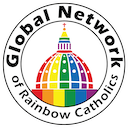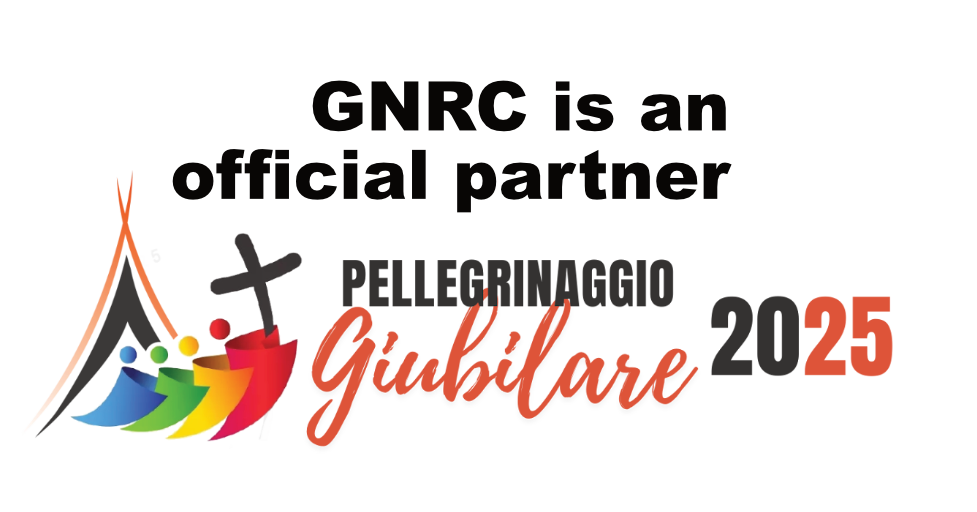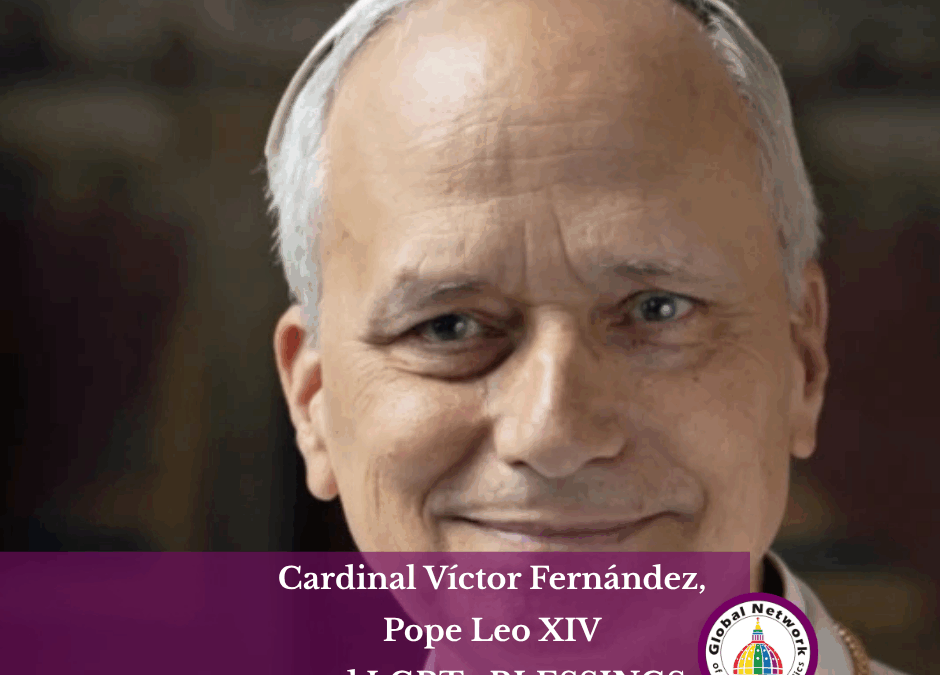These weeks, the name of Cardinal Víctor Manuel Fernández appears often in conversations across our network. Many in the Global Network of Rainbow Catholics are watching his words carefully. As Prefect of the Dicastery for the Doctrine of the Faith, he now leads the Vatican office that, not long ago, issued Fiducia Supplicans, which opened the way for blessings of couples in irregular situations, including same-sex couples, under certain pastoral conditions.
Fernández was born in 1962 in Argentina. He became Archbishop of La Plata before taking up his current post in 2023. His theological writings often explore the connection between truth and mercy, doctrine and daily life. That thread appears again in how the Church is navigating the path after Fiducia Supplicans. Just this month, speaking to Il Messaggero, he confirmed publicly that these blessings “will remain” under Pope Leo XIV.
Yet the situation remains complex. While Fiducia Supplicans remains in force, Fernández has clarified in several interviews, including with La Repubblica and Il Messaggero, that the document does not change Catholic doctrine on marriage. It merely offers a pastoral possibility for brief, non-liturgical blessings of individuals or couples, without confusing such gestures with sacramental marriage. These blessings, he has stressed, must avoid anything resembling a liturgical rite or official Church endorsement of relationships outside the traditional concept of marriage.
Since its publication on December 18, 2023, Fiducia Supplicans has generated both hope and resistance. Some bishops’ conferences, particularly in Europe and the Americas, have cautiously welcomed it as an instrument of pastoral care. Others, especially in Africa, have firmly rejected the idea of blessing same-sex couples. African bishops have declared such blessings “inappropriate” in their cultural context, fearing scandal and misunderstanding among the faithful. Pope Francis himself acknowledged in an interview with La Stampa in early 2024 that Africa is a “separate case,” emphasizing that the document does not impose uniform practice on local Churches.
There’s also a procedural dimension. Fiducia Supplicans is not a dogmatic definition or doctrinal change but a declaration of the Dicastery for the Doctrine of the Faith, approved by Pope Francis. It carries significant magisterial weight but remains pastoral guidance rather than binding liturgical law. As the Vatican clarified through further notes from the Dicastery in early 2024, local bishops retain discretion over implementing these blessings based on pastoral prudence and cultural context.
At the same time, many matters remain unresolved. The Synod on Synodality, which met first in October 2023 and will gather again this October, is working on final texts addressing diverse topics, including women’s ministry, the role of LGBT Catholics, and models of Church governance. The Vatican, through statements from both Cardinal Fernández and Cardinal Hollerich, has confirmed that the publication of definitive reports has been postponed until at least December 2025, possibly into 2026. As Fernández told Il Messaggero and La Repubblica, questions such as women deacons or deeper doctrinal developments “require more discernment.” His language carries both caution and a willingness to keep doors open.
I find the postponing of these reports as disappointing as it is understandable. The Church is searching for its own language and paradigms. It is a centuries-old body trying to listen to voices it has not always heard clearly, including ours. It’s easy to wish for immediate answers, but we don’t have all the answers either. Even in our own movement, we are a multitude of stories, cultures, consciences, ways of believing and loving. History teaches us that when someone comes with the pretense of having all the answers, it often leads to trouble. The LGBT movement truly does not have a single answer but brings forth many questions and experiences. We, as well as the Church, do not hold the ultimate truth about the mystery of being human. We walk, we ask questions, and we hope to be heard.
What I hope for is a compassionate path, because one thing we all share, one community, one family, one movement: humanity. And we are truly a mystery to ourselves.
I think of the faces I have met, not only in digital meetings but in places where our paths crossed. I think of all the different experiences they shared, and, most of all, the different understandings of those experiences.
In the coming weeks, the GNRC Assembly in Madrid will gather again many voices from all over the world. Soon after, in Rome, thousands of pilgrims will walk together through the Porta Santa for the Jubilee. Both events are ahead of us. We prepare suitcases and hearts, unsure of what new pages the Church will write. Some will bring copies of Fiducia Supplicans in their bags. For some, it remains fragile. For others, it is time to speak to a Church that listens.
Whether the final reports arrive in December or later, the conversations continue shaping us. We keep our eyes on Christ, who touched people before explaining rules. We keep walking. The Synod, the Assembly, the Jubilee pilgrimage: each is part of a path where we seek common ground, search for answers, and try to understand what it means to be human, unique, and Christian.
Alessandro Ludovico Previti
#popeleo #pope #fiduciasupplicans #lgbt


